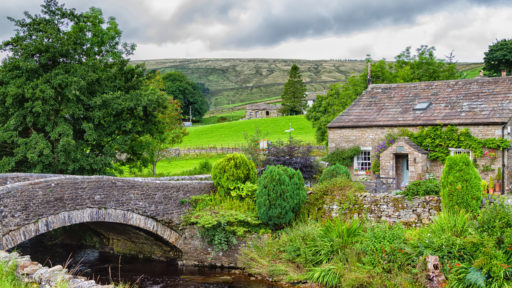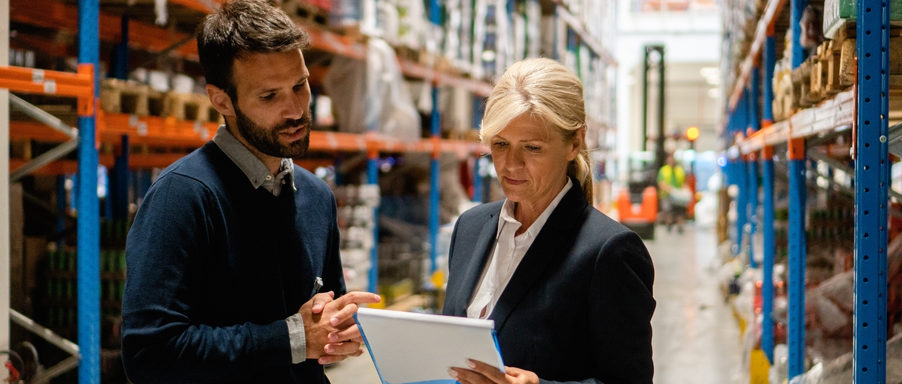Speak directly to our team
01603 218000Product liability insurance protects your business in the event of claims due to injury or damage as a result of a faulty product.
If your business is involved in any of the following then it would be wise to consider product liability insurance.
- Imports products from another country
- Manufactures goods within the UK
- Designs products which are then manufactured by another company
- Sells products to a consumer within the UK (optional coverage is available for businesses which sell to foreign markets)
- Distributes products within the UK on behalf of another company
The Alan Boswell Group Difference

It is important that your product liability insurance adequately covers the risks your business is exposed to. With many years experience of liability insurance we are able to explain the benefits and give specific examples of why this cover is essential.
For more than 30 years we have worked with many different businesses and recognise that no two are the same. Our insurance advisers will analyse your business, identify the risks and provide advice to protect against them.
As an independent insurance broker we have access to a wide range of products, so we can provide you with the best solution for your business. Add to this service our outstanding in-house claims team and risk management solutions and you have your ideal insurance partner.
How our customers rate us
Exactly what I needed with minimal fuss.
Product liability insurance provides cover for claims from third parties arising from products that a business has; designed, imported, manufactured, distributed, or sold. Examples of this include:
- Faulty product causing damage or injury (e.g. product catches fire and causes damage)
- Cases of food poisoning as a result of unintentional non-compliance with food safety standards
- Providing building materials of insufficient strength which causes a building to collapse
Product Liability Insurance in detail
- Compensation and legal costs in relation to injury to any person (excluding employees) and damage to material third-party property in connection with products.
- Financial loss to an individual or business as a result of your product.
- Costs associated with a product recall including; storage, notifying customers, and arranging the recall.
- Product contamination as a result of criminal activity or human error.
FAQs
-
Usually sold as part of a business liability package, product liability insurance covers third-party claims for personal injury or damage to property caused by a product that your business imported, manufactured, designed, sold, or distributed. Product liability insurance covers you for compensation costs and legal fees in connection with the claim.
Compensation payments might include repair or replacement of damaged property, lost income due to injury, or medical bills. A claim can be made by any third-party, even if they’re not the purchaser of the product.
The heaviest burden of product liability lies with the manufacturer, but as set out in the Consumer Protection Act, a producer, supplier, distributor, or retailer can be called to account in a legal claim. Even if you have not manufactured the product, you may still be considered liable as the seller if the manufacturer is no longer trading, can’t be found, or is located outside of the EU.
-
When a faulty product causes personal injury or damage to property, the victim can sue the person or business responsible for the fault that caused the injury or damage. However, establishing where liability lies is not always easy. The default target is the manufacturer, but everyone in the supply chain is potentially liable.
Example
A UK food manufacturer supplies lamb sausages to a supermarket. The lamb is sourced from New Zealand, imported by a UK company, and the sausages are branded as the supermarket’s own product. The sausages are transported from manufacturing plant to retail outlets by a haulage company.
Several cases of food poisoning are traced back to the lamb sausages. Who is liable?
- The retailer provides records to prove adherence to food hygiene protocol. They say that the product was faulty before it was in their possession.
- The haulage company provides records to prove adherence to food hygiene protocol. They say that the product was handled in strict accordance with the manufacturer’s specifications.
- The manufacturer provides records to prove adherence to food hygiene protocol. They claim that the meat was infected when it arrived.
- The importer also provides records to prove adherence to food hygiene protocol.
- The New Zealand meat producers are unaffected by any UK lawsuit.
If it’s established that the meat was infected before it reached the manufacturer, then the importer, as the first handler in the UK, is liable. If the product was spoiled in transit, liability could lie with the haulage company and/or the retailer. If the meat was contaminated during the manufacturing process (storage, internal transportation, handling, packing, etc), the manufacturer will be liable and the retailer may share liability because of brand ownership.
It should be noted that, unlike in criminal proceedings where proof must be “beyond all reasonable doubt”, the burden of proof in a civil claims case is on the victim to prove wrongdoing “on the balance of probability”. This means that the claimant only has to prove that the defendant is more likely to be at fault than not.
-
Businesses that sell or handle products should have product liability insurance. They include:
- Producers – who harvest and sell raw materials.
- Manufacturers – who fabricate products from raw materials and/or from components made by other manufacturers. When a supplier of component parts or materials cannot be identified or is no longer in business, the manufacturer is liable.
- Distributors – who bridge the gap between producer/manufacturer and retailer.
- Retailers – who sell manufactured items or fresh produce to the consumer. It’s especially important for a retailer to have product liability insurance if the goods are own-branded as they are also liable as the manufacturer in this case.
- Shippers – who transport materials and products.
- Restorers and maintenance providers – who alter, repair, or adapt a product.
A business that provides only services – for example: an accountant, copywriter, sports coach, or architect – doesn’t need product liability insurance. However, they would still need public liability insurance and may want to consider other business related insurances, such as professional indemnity insurance.
-
Public and product liability insurance both cover defence costs and legal liability to third parties. But this is where the similarity ends.
Public liability provides protection in the event of a claim for bodily injury or damage to property caused by the insured whilst providing services.
Product liability insurance protects the insured against a claim for bodily injury or damage to property caused by a product manufactured or supplied by the insured.
The incident that gives rise to a public liability claim occurs at a time when the insured person is providing a service. For example, a customer trips on a cable and is hurt while a contractor is installing a kitchen suite. The cost of defending a claim would be covered by public liability insurance.
Product liability claims can be made up to three years after the alleged injury or damage is sustained. For example, four years after the kitchen is fitted a shelf collapses, causing bodily injury. Two years later, the injured person realises that their aching shoulder is due to the impact of the collapsed shelf and they claim compensation from the kitchen fitter.
The claim comes six years after the kitchen was installed. For this reason, product liability coverage should continue during gaps in production and even after production or trading has ceased. However, a claim cannot be made more than 10 years after the product was supplied.
-
Product liability insurance covers third-party claims for personal injury or damage to property caused by a product. The cover includes:
- Legal representation
- Compensation payment to the claimant
-
Public and product liability insurance work in tandem to provide protection against claims for bodily injury or damage to property caused by a business’s services or products. Typically, the combined cover ranges from £1 – 10 million.
When taking out product liability cover, consider the potential size of a compensation claim and check client contracts for any required levels of product liability cover.
Another factor is the level of risk. Putting mitigating measures in place will lower the risk of a product causing harm to a person or property. For example:
- If your product needs to be installed by a qualified technician, handled with care, or kept at a low temperature, it’s important to provide adequate instructions and to keep records as evidence that the instructions have been provided.
- Always take advice on regulations that affect your product. Investigate any relevant safety standards and consider modifying your product to meet these standards.
- In the case of own-brand goods, keep detailed records of who supplied the goods, when they supplied them, and how they were delivered.
-
Product liability is not a legal requirement. However, some suppliers, distributors, and retailers will require partners to be covered by product liability insurance. And bear in mind that there’s no upper limit to a potential pay-out, so if a claim is brought then it could be incredibly damaging for a small business.
-
The cost is largely dependent on the business and products that are being supplied as this will dictate the level of cover you need, as well as where your products are being sold, supplied, or manufactured.
Get in touch
Speak directly to our team
01603 218000

Ian Bowes
Account Executive
Ian left Downham Market sixth form and joined Aviva in Cambridge in 1987 working in their Personal Department. In 1993 he left to join insurance…
Related Products
Employers' Liability Insurance
Cover for employee injury or illness arising as a result of their employment with your business.
Professional Indemnity Insurance
Covers the cost of compensating clients for loss or damage resulting from negligent services or advice provided.
Public Liability Insurance
Cover for damage to third parties (individuals or property) caused by your business operations e.g. visitor slips over on spill not tidied up.
Related news

The benefits of professional indemnity insurance with examples
The five main benefits of professional indemnity insurance, what businesses need PI cover, with examples of PI claims.

Things to be aware of when starting up a self-drive hire business
Hiring out your own campervan or motorhome or starting a hire business could be a good way to earn extra income. Here, we look at what to consider if you’ve ever thought of starting a self-drive hire firm.

Using your pension to invest in commercial property
Investing in commercial property can be beneficial if you’re a business owner, as you’ll have premises for your company plus regular payments into your pension.

Guide to buying and renting out a holiday let
If you’re considering buying and renting out a holiday home there’s plenty to think about. In this comprehensive guide we’ll explore every aspect to buying a holiday home and successfully renting it out.

